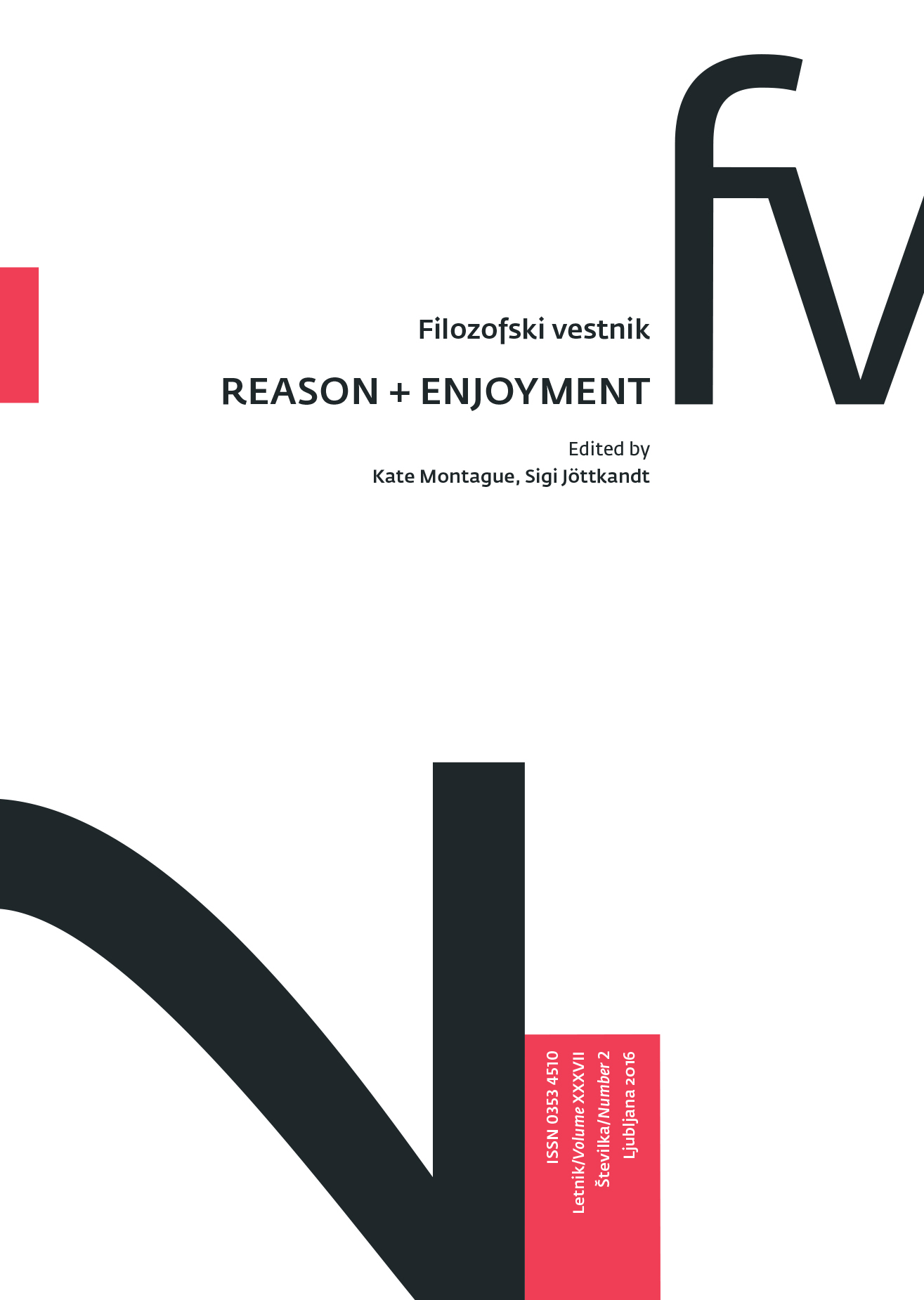Est deus in nobis ali volja do užitka
Ključne besede:
Sade, Epiktet, želja, volja, prohairesis, um, užitekPovzetek
V »Kantu s Sadom« Lacan uprizori dva nezdružljiva para, nezdružljiva natanko v tisti meri, v kateri združujeta um in užitek: na eni strani Kanta s Sadom, na drugi strani Sada z Epiktetom. Če je Sade sparjen s Kantom, zato da bi se pokazala skrita gonilna sila Kantovega moralnega zakona, pa nam združitev Epikteta in Sada razodene Sadovo manjkavost kot želječega subjekta. Sledeč Lacanovim opazkam glede radikalne spremembe subjektovega statusa na koncu analize, ki je posledica vzpostavitve novega razmerja med željo in voljo, bo pričujoči prispevek preiskoval dve modalnosti subjektovega soočenja z voljo Drugega do užitka: Sadovo in stoiško. Opirajoč se na nekatere ključne točke zbliževanja in razhajanja omenjenih dveh modalnosti subjektovega soočanja z voljo do užitka, bo avtorica raziskala pogoje možnosti etike brez Drugega, natančneje povedano, etike gona, ki omogoča neperverzno prekoračitev načela ugodja.Prenosi
Podatki o prenosih še niso na voljo.
Prenosi
Objavljeno
2017-01-18
Kako citirati
Šumič Riha, J. (2017). Est deus in nobis ali volja do užitka. Filozofski Vestnik, 37(2). Pridobljeno od https://ojs.zrc-sazu.si/filozofski-vestnik/article/view/4873
Številka
Rubrike
Um + užitek
Licenca
Avtorji jamčijo, da je delo njihova avtorska stvaritev, da v njem niso kršene avtorske pravice tretjih oseb ali kake druge pravice. V primeru zahtevkov tretjih oseb se avtorji zavezujejo, da bodo varovali interese založnika ter da bodo povrnili morebitno škodo.
Podrobneje v rubriki: Prispevki





